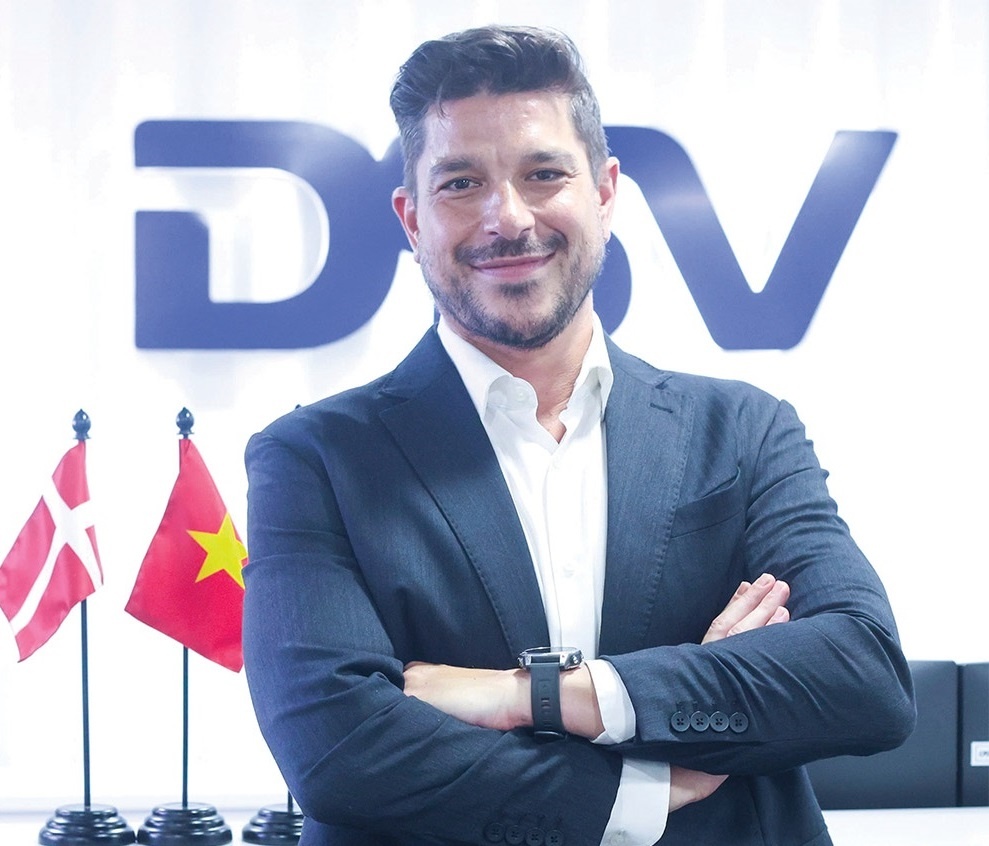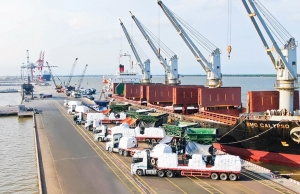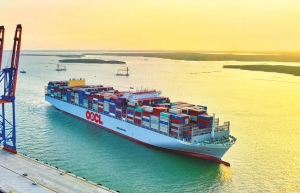DSV to remain competitive in a demanding market
Since DSV’s entry into Vietnam in 2001, the country’s logistics infrastructure – including seaports and airports – has evolved significantly. How would you assess the key changes in this area?
 |
| Eric Herding, managing director of DSV Air and Sea Vietnam |
It’s no secret that over the past 20 years, Vietnam’s role as a major player in the global economy has grown significantly. To pull in foreign investment, Vietnam has developed key ports and shipping corridors at Haiphong and Cai Mep, significantly increasing both overall throughput and vessel capacity. Cat Lai Port in Ho Chi Minh City has become one of the busiest terminals in Asia.
On the aviation front, the expansion and upgrading of cargo handling facilities at Noi Bai Airport in Hanoi have been remarkable, driven by the need to accommodate more advanced and high-value production, particularly of electronic goods. The critical expansions at Haiphong Seaport and the new capacity at Long Thanh Airport are essential for the logistics, import, and export sectors.
How does Vietnam’s logistics infrastructure compare to other countries in the region?
For DSV one of our biggest strengths is our global network and our ability to access capacity and leverage options and solutions within the country and within our region as well.
It is very important to understand all available options and existing and potential bottlenecks to help our customers meet their commitments to their end customers. We have connectivity to neighbouring countries with combinations of road, rail, sea and air to find the most favourable options to facilitate the flow of supply in and out of the country.
It may also work in reverse where bottlenecks in other locations result in the flow of goods coming into Vietnam to access the capacity here.
What challenges do logistics companies face when investing in Vietnam?
DSV’s business model is as an asset-light logistics company. We are making our investments primarily in our people and further in our facilities and equipment used in the provision of services for our customers. DSV on a global level has commitments to make large investments to reduce the environmental impact of our services.
Those investments are for more sustainable facilities, material handling equipment and vehicles. We make a business case to request funds for investment in countries. As an example, we could apply for funds to invest with our partners for solar power in logistics facilities or electric trucks or delivery vans. One key challenge for an investment such as electrified vehicles is access to and supply of renewable energy.
What measures should be taken in Vietnam’s logistics sector, particularly in green logistics and sustainable development?
 |
| Companies like DSV are striving to reduce their environmental impact |
Access to renewable energy to assure a net benefit on the deployment of electrified vehicles has been mentioned above, likewise access and affordability of alternative and sustainable fuels is another key area.
We are now focused on producing the data and calculations so we can support our business and our customers’ business to establish a baseline of CO2 emissions for the transportation services we provide. With that important data, we can make analysis and assessment to find opportunities for reducing the emissions. Capturing the data and applying technology and expertise to reach related targets.
 |
| DSV plans to expand facilities and enhance its service offerings |
What are DSV’s strategic plans for expansion and growth in Vietnam?
DSV has grown organically and through mergers and acquisitions over the past decades, and this strategy will continue. As a top global logistics provider, we must have the right people, systems, equipment, and services to remain competitive in a demanding market. We plan to expand our facilities and enhance our service offerings and expertise to meet market needs.
Our focus includes strengthening intra-continental trucking, barging, and multi-modal transport capabilities. Size and strength are key to securing capacity in air, sea, and land transport. Most importantly, we strive to be recognised as a reliable and supportive partner for customers of all sizes.
In Vietnam we enjoy access to an incredibly talented and motivated talent pool and very enterprising spirit when conducting business. As the economy in Vietnam develops and a wider range of industries and develop and flourish, we have access to a Global Network of competency and expertise that we can draw on to meet the increasingly complex logistics and transportation requirements of different industries.
We are also committed to building a reputation for innovation, particularly in implementing solutions that reduce the environmental impact of our operations. Sustainability remains a priority as we work to make a measurable difference in the logistics sector.
 | Logistics groups branch out for gains Driving by growth results in the first half of 2024, Vietnamese logistics companies are transforming their business reach to maintain momentum. |
 | Big firms seeing potential in logistics Many foreign companies are bolstering investments in Vietnam’s logistics market to tap into the burgeoning cross-border trade transportation. |
What the stars mean:
★ Poor ★ ★ Promising ★★★ Good ★★★★ Very good ★★★★★ Exceptional
Related Contents
Latest News
More News
- Vietnam sets ambitious dairy growth targets (February 24, 2026 | 18:00)
- Masan Consumer names new deputy CEO to drive foods and beverages growth (February 23, 2026 | 20:52)
- Myriad risks ahead, but ones Vietnam can confront (February 20, 2026 | 15:02)
- Vietnam making the leap into AI and semiconductors (February 20, 2026 | 09:37)
- Funding must be activated for semiconductor success (February 20, 2026 | 09:20)
- Resilience as new benchmark for smarter infrastructure (February 19, 2026 | 20:35)
- A golden time to shine within ASEAN (February 19, 2026 | 20:22)
- Vietnam’s pivotal year for advancing sustainability (February 19, 2026 | 08:44)
- Strengthening the core role of industry and trade (February 19, 2026 | 08:35)
- Future orientations for healthcare improvements (February 19, 2026 | 08:29)

 Tag:
Tag:



















 Mobile Version
Mobile Version